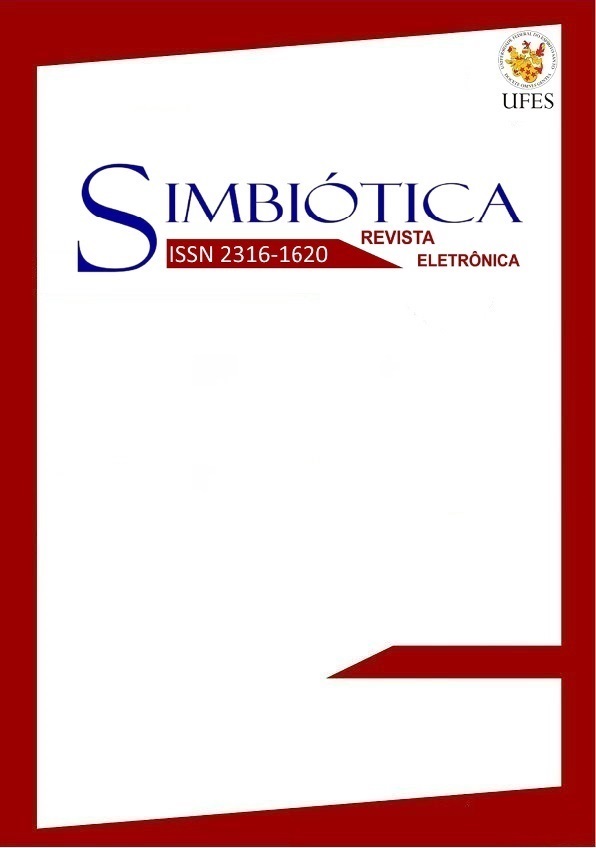All against the people: limits of Ernesto Laclau's theory
DOI:
https://doi.org/10.47456/simbitica.v6i2.28443Abstract
Este artigo tem como objetivos: 1) apresentar brevemente os pressupostos necessários à compreensão do conceito de povo construído pelo teórico político argentino Ernesto Laclau; 2) mostrar o conceito de povo proposto pelo referido autor; 3) analisar criticamente o referido conceito e sua utilização para pensar as práticas democráticas contemporâneas. Ao longo de sua trajetória acadêmica, o autor supracitado desenvolveu importantes ferramentas teóricas para pensar as formações políticas, como é o caso do conceito de povo. Ofereceu uma visão afastada de preconceitos e interpretou a política fora da racionalidade tradicional, mostrando seus dissensos e paixões. Todavia, como argumentaremos, especificamente em relação ao conceito de povo, o teórico oferece uma alternativa incompatível com a política democrática de nossos tempos, baseada na inclusão de todos.
Palavras-chave: Povo; Ernesto Laclau; Teoria Política; Pós-Estruturalismo.
Abstract
This article aims to: 1) briefly present the necessary assumptions for the understanding of the concept of people built by the Argentinian political theorist Ernesto Laclau; 2) show the concept of people proposed by the mentioned author; 3) critically analyze the referred concept and its use to think about contemporary democratic practices. Throughout his academic career, the aforementioned author developed important theoretical tools for thinking about political formations, such as the concept of people. He offered a perspective apart from prejudice and interpreted politics out of the traditional rationality, showing its dissent and passions. However, as we will argue, specifically in relation to the concept of people, the author offers an alternative that is incompatible with the democratic politics of our time, based on the inclusion of all.
Keywords: People; Ernesto Laclau; Political Theory; Post-Structuralism.
Resumem
Este artículo tiene como objetivos: 1) presentar brevemente los supuestos necesarios para la comprensión del concepto de pueblo construido por el teórico político argentino Ernesto Laclau; 2) mostrar el concepto de pueblo propuesto por el referido autor 3) analizar críticamente este concepto y su uso para pensar sobre las prácticas democráticas contemporáneas. A lo largo de su carrera académica, el autor antes mencionado desarrolló importantes herramientas teóricas para pensar sobre formaciones políticas, como el concepto de pueblo. Ofreció una visión alejada de las ideas preconcebidas e interpretó la política de fuera de la racionalidad tradicional, mostrando sus desacuerdos y pasiones. Sin embargo, como argumentaremos, específicamente en relación con el concepto de pueblo, el teórico ofrece una alternativa incompatible con la política democrática de nuestros tiempos, basada en la inclusión de todos.
Palabras clave: Pueblo; Ernesto Laclau; Teoría Política; Post-Estructuralismo.
Downloads
Published
Issue
Section
License
Copyright (c) 2020 Kamila Nascimento

This work is licensed under a Creative Commons Attribution-NonCommercial-NoDerivatives 4.0 International License.
Autores que publicam nesta revista concordam com os seguintes termos:
a. Autores mantém os direitos autorais e concedem à revista o direito de primeira publicação, com o trabalho simultaneamente licenciado sob a Creative Commons - Atribuição-NãoComercial 4.0 Internacional.
b. Compartilhar - copiar e distribuir o material em qualquer meio ou formato.
Adaptar - remix, transformar e construir sobre o material para qualquer finalidade, inclusive comercial.
c. Autores têm autorização para assumir contratos adicionais separadamente, para distribuição não-exclusiva da versão do trabalho publicada nesta revista (ex.: publicar em repositório institucional ou como capítulo de livro), com reconhecimento de autoria e publicação inicial nesta revista.
d. Autores têm permissão e são estimulados a publicar e distribuir seu trabalho online (ex.: em repositórios institucionais ou na sua página pessoal) a qualquer ponto antes ou durante o processo editorial, já que isso pode gerar alterações produtivas, bem como aumentar o impacto e a citação do trabalho publicado (Veja O Efeito do Acesso Livre).
Authors who publish in this journal agree to the following terms:
a. Authors retain the copyright and grant the magazine the right of first publication, with work simultaneously licensed under the CCreative Commons - Atribuição-NãoComercial 4.0 Internacional.
b. Share - copy and distribute the material in any medium or format.
Adapt - remix, transform and build on the material for any purpose, including commercial.
c. Authors are authorized to take additional contracts separately, for non-exclusive distribution of the version of the work published in this journal (eg, publish in institutional repository or as a book chapter), with acknowledgment of authorship and initial publication in this journal.
d. Authors are allowed and encouraged to publish and distribute their work online (eg.: in institutional repositories or on their personal page) at any point before or during the editorial process, as this can generate productive changes as well as increase the impact and the citation of the published work (See The Effect of Free Access).










